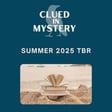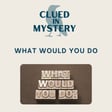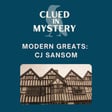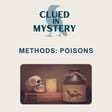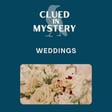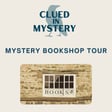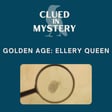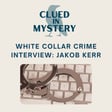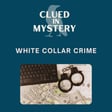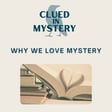
Golden Age Author Ronald Knox
Priest. Author. Creator of mystery's "ten commandments". Original member of the Detection Club. Ronald Knox was an early influence on the mystery genre, yet his writing is not widely known. In today's episode, Brook and Sarah discuss their theories on why as they explore the life and work of this mystery pioneer.
Discussed
“Studies in the Literature of Sherlock Holmes” (1912) Ronald A. Knox
The Viaduct Murders (1925) Ronald A. Knox
"The Adventure of the First Class Carriage" (1947) Ronald A. Knox
A Book of Acrostics (1924) Ronald A. Knox
The Life of Right Reverend Ronald Knox (1959) Evelyn Waugh
War of the Worlds (1938 broadcast) Orson Welles
The Footsteps at the Loch (1928) Ronald A. Knox
For more information
Instagram: @cluedinmystery
Contact us: hello@cluedinmystery.com
Music: Signs To Nowhere by Shane Ivers – www.silvermansound.com
Sign up for our newsletter: https://cluedinmystery.com/clued-in-chronicle/
Join the Clued in Cartel for as little as $12 USD/year: https://cluedinmystery.com/clued-in-cartel/
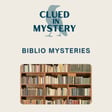
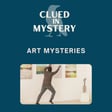
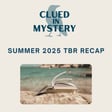
![[Bonus] Thursday Murder Club preview image](https://media.zencastr.com/cdn-cgi/image/width=112,quality=85/image-files/61e1c276e3ec42007857cff9/e51be644-e446-4d32-b89c-12bfc60d30e9.jpg)
![[Re-release] Hallmark Mysteries and More (part 2) image](https://media.zencastr.com/cdn-cgi/image/width=112,quality=85/image-files/61e1c276e3ec42007857cff9/edbc4a22-ebb8-42cb-b211-1f94f4cb920f.jpg)
![[Re-release] Golden Age Author: Ngaio Marsh image](https://media.zencastr.com/cdn-cgi/image/width=112,quality=85/image-files/61e1c276e3ec42007857cff9/782f9391-308c-4bad-9197-749bef7d8bd1.jpg)

![[Re-release] Hallmark Mysteries and More (part 1) image](https://media.zencastr.com/cdn-cgi/image/width=112,quality=85/image-files/61e1c276e3ec42007857cff9/57bb1653-1df6-4119-8a26-b354258d4329.jpg)
